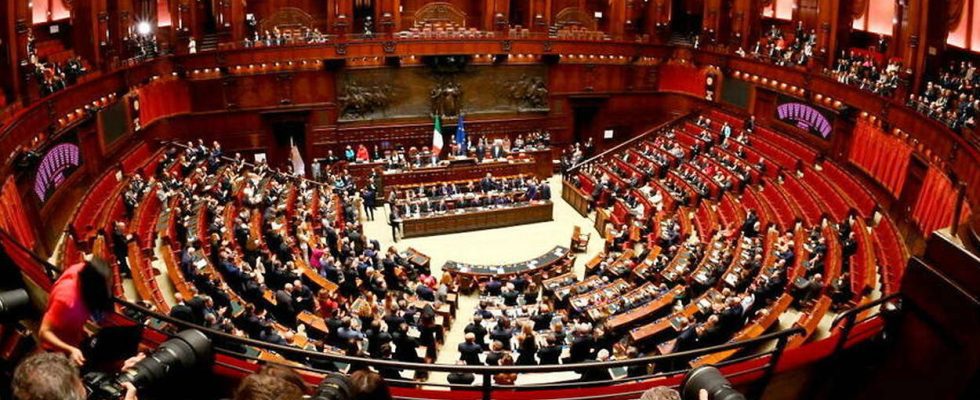I’Italy, in open war against Anglicisms? This is at least the meaning of a bill tabled by the vice-president of the Chamber of Deputies and member of the far-right Fratelli d’Italia party, Fabio Rampelli. Supported by Prime Minister Giorgia Meloni, president of the party, the text aims to reduce the use of English in society. The English language “debases and mortifies” Italian, say its authors, determined to banish it from all official documents and communications. “Its use would become compulsory in all offices, even those dealing with non-Italian-speaking foreigners,” the text also argues. A provision which, if adopted, could be costly for offenders: “with penalties ranging from 5,000 to 100,000 euros”.
If all languages are concerned, it is English which is explicitly targeted in the bill of elected officials. “Anglomania has repercussions on the whole of society”, its authors explain in the preamble, who envisage the support of a committee, created by the Ministry of Culture, intended to “certify the correct use of Italian language and its pronunciation”.
+ 773% Anglicisms
These are figures, relayed by the Agenzia Italia press agency, which prompted Fabio Rampelli and his colleagues to want to legislate: since the year 2000, the number of Anglicisms has jumped by 773% in the Italian language. Thus the reference dictionary Treccani he would list nearly 9,000 out of 800,000 words. A “colossal” number, comments to the Point Bernard Cerquiglini, eminent linguist and scientific advisor to the Le Petit Larousse dictionary. “In newspapers, political debates, as in interpersonal relations… English is everywhere in Italy today”, testifies the specialist, who recounts, half-amused half-skeptical, that a transalpine restaurant told him little time before being complete in these terms: “Siamo full! » [Nous sommes full (« complets », NDLR].
READ ALSOToubon: “Fighting against Anglicisms is not a fight of the scruffy! »
By way of comparison, in France, 150 new words enter the Petit Larousse every year and, of these, only 15% are foreign – mostly Anglo-American. A stable figure over the last twenty-five years. “We cannot speak of an invasion here, as it happens in Italy! »
Previous Mussolini
It must be said that if Fratelli d’Italia presented, last November, a bill intended to include Italian in the Constitution, no legislative framework yet governs the language. Thus, when French is protected by article 2 of the Constitution (“The language of the Republic is French”) and the Toubon law of August 4, 1994 (which imposes the use of the French language in legal texts, employment contracts and all writings intended for consumers), the Italian is today only by the Accademia della Crusca, the unofficial equivalent of the French Academy. Equipped with a “prevention police”, it sticks to “spotting” Anglicisms before they “take root” in the Italian language.
A state of affairs that stems from a heavy precedent: Mussolini, by imposing in 1923 on his compatriots to dispense with foreign words, such as “cocktail”, “flirt” or even “garage”, recalled how “language could to be authoritarian”, emphasizes Bernard Cerquiglini. Since then, for fear of appearing nostalgic for the statesman, “few Italians dare to defend their language”.
practical concern
“Italy does, however, need language legislation, at least for practical reasons! argues the linguist, who remembers those French nurses, some of whom, before the Toubon law, could not decipher the instructions for use of certain syringes, written in English. “What about an Italian court judgment delivered tomorrow, in English? We can imagine anything…”
READ ALSOItaly: what is Meloni the name of?
Without prejudging the fascist inspiration of Fratelli d’Italia, “charges the government party to stop there and not fall into linguistic authoritarianism”, he warns however. Namely, precisely define its field of application, without it “never applying to the individual, as such”, as the text, for the time being, is restricted to it. “The law will apply exclusively to public and private entities” assured the bearer of the text, Fabio Rampelli, daily Corriere della Sera.
